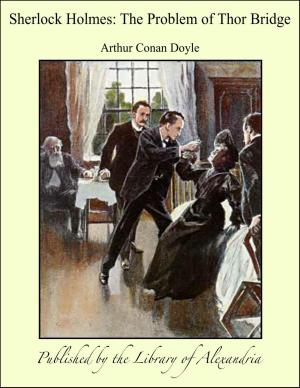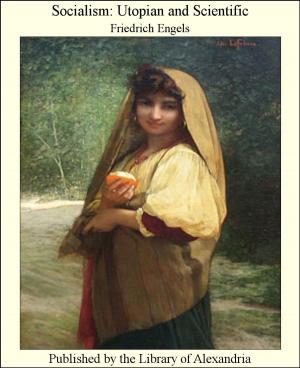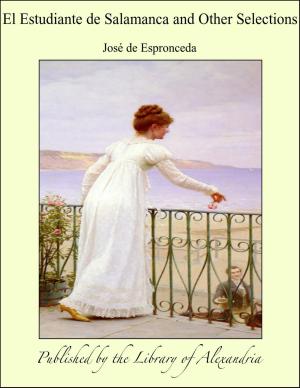| Author: | Thomas Adolphus Trollope | ISBN: | 9781465628596 |
| Publisher: | Library of Alexandria | Publication: | March 8, 2015 |
| Imprint: | Language: | English |
| Author: | Thomas Adolphus Trollope |
| ISBN: | 9781465628596 |
| Publisher: | Library of Alexandria |
| Publication: | March 8, 2015 |
| Imprint: | |
| Language: | English |
It was Carnival time in the ancient and once imperial, but now provincial and remote, city of Ravenna. It was Carnival time, and the very acme and high-tide of that season of mirth and revel. For the theory of Carnival observance is, that the life of it, unlike that of most other things and beings, is intensified with a constantly crescendo movement up to the last minutes of its existence. And there now remained but an hour before midnight on the Tuesday preceding the first day of Lent, Ash Wednesday—Dies Cinerum!—that sad and sober morrow which has brought with it "sermons and soda-water" to so many generations of revellers. Of course Carnival, according to the Calendar and Time's hour-glass, is over at twelve o'clock on the night of Shrove Tuesday. Generally, however, in the pleasure-loving cities of Italy, a few hours' law are allowed or winked at. The revellers are not supposed to become aware that it is past midnight till about three or four in the morning. Very generally the wind-up of the season of fun and frolic consists of what is called a "Veglione," or "great making a night of it," which means a masked ball at the theatre. And the great central chandelier does not begin to descend into the body of the house, to have its lights flapped out by the handkerchiefs of the revellers amid a last frantic rondo, till some four hours after midnight. But in provincial Ravenna, a Pope's city under the rule of a Cardinal Legate, there is—or was in the days when the Pope held sway there—no Veglione. Its place was supplied, as far as "the society" of the city was concerned, by a ball at the "Circolo dei Nobili." It was not, therefore, till four o'clock in the morning, or perhaps even a little later, that the lights would be extinguished on the night in question at the "Circolo dei Nobili," and Carnival would, in truth, be over, and the tired holiday-makers would go home to their beds. A few hours more remained, and the revelry was at its height, and the dancers danced as knowing that their minutes were numbered. There had been a ball on the previous night at the Palazzo of the Marchese Lamberto di Castelmare. But the scene at the Circolo was a much more brilliant, animated, and varied one than that of the night before at the Castelmare palace. The Marchese Lamberto was the wealthiest noble in Ravenna, and—putting aside his friend the Cardinal Legate—was, in many other respects, the first and foremost man of the city. He was a bachelor of some fifty years old. And bachelors' houses and bachelors' balls have the reputation of enjoying the privilege of a somewhat freer and more unreserved gaiety and jollity than those of their neighbours more heavily weighted with the cares and responsibilities of life. But such was not the case at the Palazzo Castelmare. Presided over on such occasions as that of the great annual Carnival ball by a widowed sister-in-law of the Marchese, the Castelmare palace was the most decorous and respectable house, as its master was the most decorous and respectable man, in Ravenna. Not that it was a dull house. The Marchese Lamberto, though a grave and dignified personage in the eyes of the "jeunesse doree" of Ravenna, was looked up to as one of the best loved, as well as most respected, men in the city. And there was not a member of the "society" who would not have been sadly hurt at not being invited to the great annual Carnival ball at the Castelmare palace. But the same degree of laissez aller jollity would not have been "de mise" there as was permissible at the Circolo. The fun was not so fast and furious as it was wont to be at the club of the nobles on the last night of Carnival. The whole society were at the latter gathering. All the nobles of Ravenna were the hosts, and everybody was there solely and entirely to amuse and enjoy themselves. Host and guests, indeed, were almost identical. There were but few persons present, and those strangers to the town, who did not belong to their own class.
It was Carnival time in the ancient and once imperial, but now provincial and remote, city of Ravenna. It was Carnival time, and the very acme and high-tide of that season of mirth and revel. For the theory of Carnival observance is, that the life of it, unlike that of most other things and beings, is intensified with a constantly crescendo movement up to the last minutes of its existence. And there now remained but an hour before midnight on the Tuesday preceding the first day of Lent, Ash Wednesday—Dies Cinerum!—that sad and sober morrow which has brought with it "sermons and soda-water" to so many generations of revellers. Of course Carnival, according to the Calendar and Time's hour-glass, is over at twelve o'clock on the night of Shrove Tuesday. Generally, however, in the pleasure-loving cities of Italy, a few hours' law are allowed or winked at. The revellers are not supposed to become aware that it is past midnight till about three or four in the morning. Very generally the wind-up of the season of fun and frolic consists of what is called a "Veglione," or "great making a night of it," which means a masked ball at the theatre. And the great central chandelier does not begin to descend into the body of the house, to have its lights flapped out by the handkerchiefs of the revellers amid a last frantic rondo, till some four hours after midnight. But in provincial Ravenna, a Pope's city under the rule of a Cardinal Legate, there is—or was in the days when the Pope held sway there—no Veglione. Its place was supplied, as far as "the society" of the city was concerned, by a ball at the "Circolo dei Nobili." It was not, therefore, till four o'clock in the morning, or perhaps even a little later, that the lights would be extinguished on the night in question at the "Circolo dei Nobili," and Carnival would, in truth, be over, and the tired holiday-makers would go home to their beds. A few hours more remained, and the revelry was at its height, and the dancers danced as knowing that their minutes were numbered. There had been a ball on the previous night at the Palazzo of the Marchese Lamberto di Castelmare. But the scene at the Circolo was a much more brilliant, animated, and varied one than that of the night before at the Castelmare palace. The Marchese Lamberto was the wealthiest noble in Ravenna, and—putting aside his friend the Cardinal Legate—was, in many other respects, the first and foremost man of the city. He was a bachelor of some fifty years old. And bachelors' houses and bachelors' balls have the reputation of enjoying the privilege of a somewhat freer and more unreserved gaiety and jollity than those of their neighbours more heavily weighted with the cares and responsibilities of life. But such was not the case at the Palazzo Castelmare. Presided over on such occasions as that of the great annual Carnival ball by a widowed sister-in-law of the Marchese, the Castelmare palace was the most decorous and respectable house, as its master was the most decorous and respectable man, in Ravenna. Not that it was a dull house. The Marchese Lamberto, though a grave and dignified personage in the eyes of the "jeunesse doree" of Ravenna, was looked up to as one of the best loved, as well as most respected, men in the city. And there was not a member of the "society" who would not have been sadly hurt at not being invited to the great annual Carnival ball at the Castelmare palace. But the same degree of laissez aller jollity would not have been "de mise" there as was permissible at the Circolo. The fun was not so fast and furious as it was wont to be at the club of the nobles on the last night of Carnival. The whole society were at the latter gathering. All the nobles of Ravenna were the hosts, and everybody was there solely and entirely to amuse and enjoy themselves. Host and guests, indeed, were almost identical. There were but few persons present, and those strangers to the town, who did not belong to their own class.















